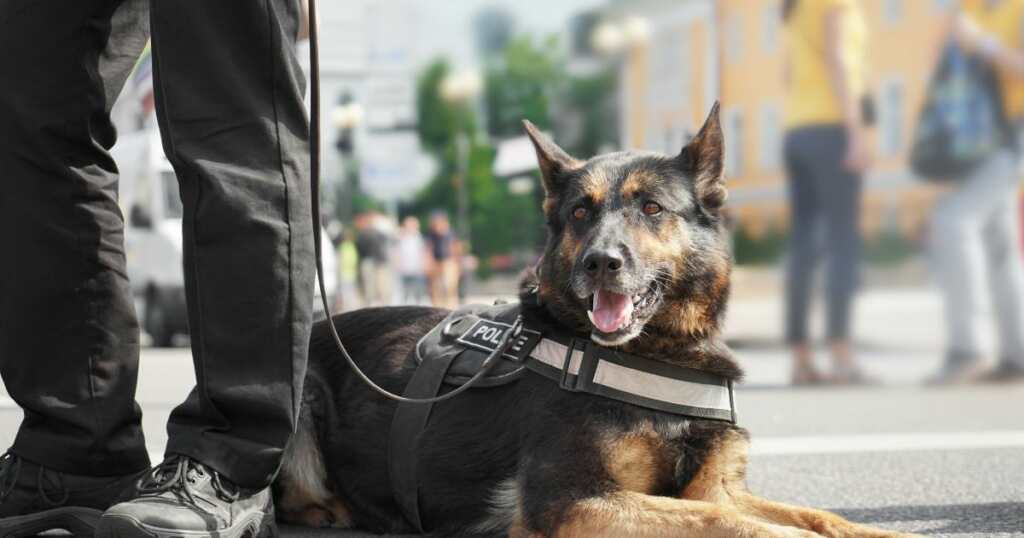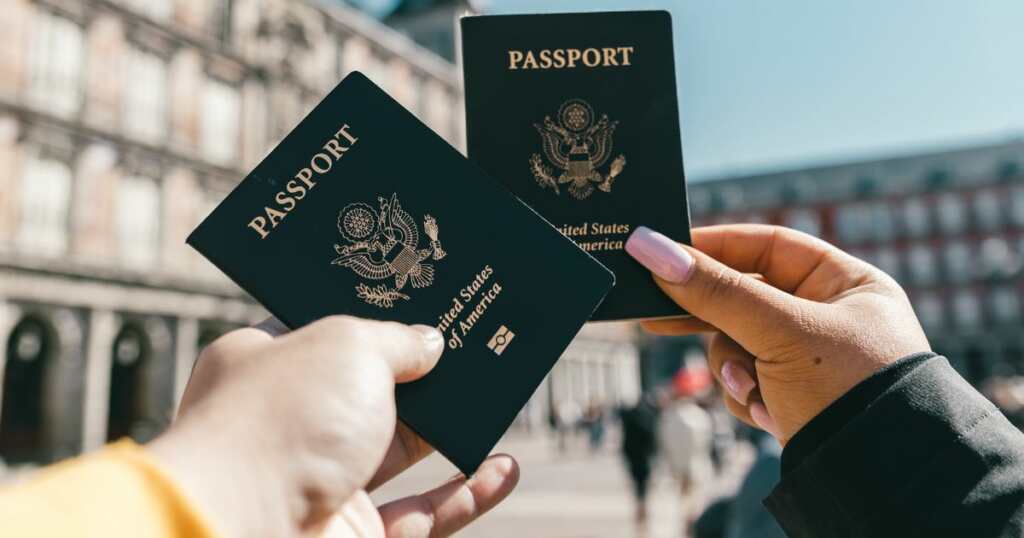Can You Travel with Legal Edibles in Canada? Know the Rules
Can you travel with legal edibles in Canada? The answer is yes, but there’s more to it than meets the eye. Get ready to embark on a journey of insights and regulations in our guide, where we unravel the rules and help you travel with your favourite cannabis-infused treats like a pro!
Understanding Legal Edibles in Canada
Legal edibles in Canada refer to cannabis-infused products that are consumed orally, such as gummies, chocolates, and beverages. These products are available for purchase through licensed retailers and online stores. It’s essential to note that legal edibles differ significantly from other cannabis products, such as dried flowers or concentrates. They are discreet, convenient, and provide an alternative way to enjoy the benefits of cannabis without the need for smoking or vaping.
The availability of legal edibles in Canada is a testament to the country’s progressive approach to cannabis legalization. However, their regulation is stringent to ensure consumer safety and compliance with the law.
Regulations and Restrictions Governing Edibles
Legal edibles are subject to strict regulations at both the federal and provincial levels. The Cannabis Act, enacted in October 2018, governs the production, sale, and consumption of cannabis products, including edibles. Here are some key regulations and restrictions:
- THC Limit: Edibles are limited to a maximum of 10 milligrams of tetrahydrocannabinol (THC) per package. This is to prevent overconsumption and the associated risks.
- Child-Resistant Packaging: All edible products must be sold in child-resistant packaging to reduce the likelihood of accidental ingestion by children.
- No Mixing with Alcohol or Tobacco: Edibles cannot contain alcohol or nicotine, ensuring that they remain a distinct category of products.
- Clear Labeling: Products must have clear and standardized labelling, including information on THC content, serving size, and health warnings.
- No Appeal to Minors: Packaging and marketing must not appeal to minors, and there are strict guidelines on advertising and promotion.
It’s important to check the packaging and labelling of legal edibles to ensure compliance with these regulations. Failure to do so can result in legal consequences.
Legal Framework for Traveling with Edibles
Travelling with legal edibles in Canada involves navigating a complex legal framework that includes federal and provincial rules. Understanding these regulations is essential to avoid legal issues during your journey.
Federal Regulations
At the federal level, the Cannabis Act governs the possession and transportation of legal edibles. Here’s what you need to know:
- Possession Limits: You are allowed to possess a maximum of 30 grams of dried cannabis or the equivalent in edible products in public. This means you can travel with legal edibles as long as you stay within this limit.
- Travelling Across Provincial Borders: While it is legal to travel with legal edibles within Canada, it’s essential to be aware that regulations may vary from one province to another. Some provinces may have additional restrictions or rules regarding the transportation of cannabis products. Therefore, it’s advisable to check the specific regulations of the province you are travelling to or through.
- Transportation Methods: When travelling with legal edibles, it’s crucial to store them securely in their original packaging, which must meet child-resistant standards. Transporting edibles in an unmarked or easily accessible manner may result in legal issues.
Provincial Regulations
In addition to federal regulations, each province in Canada has the authority to establish its own rules regarding the possession and transportation of legal edibles. These rules can vary widely, so it’s essential to research the specific regulations in your destination province. Here are some common provincial regulations related to travelling with legal edibles:
- Age Restrictions: Some provinces may have higher minimum age requirements for purchasing and possessing legal edibles.
- Purchase Locations: The availability of legal edibles and the locations where they can be purchased may vary by province.
- Transportation Restrictions: Certain provinces may have additional restrictions on how legal edibles can be transported, such as restrictions on open containers in vehicles.
- Public Consumption: While it is generally legal to possess legal edibles, public consumption may be restricted in some provinces. It’s essential to know whether you can consume these products in public places or if you must do so in private residences.
- Retailer Requirements: Provinces may have specific requirements for retailers selling legal edibles, including licensing and training for staff.
Travelling Domestically with Edibles
Travelling domestically within Canada with legal edibles can be a straightforward process if you follow some guidelines and best practices. Here, we’ll cover what you need to know about carrying edibles on domestic flights or within the country.
Guidelines and Best Practices
- Check Provincial Regulations: Before you travel, familiarize yourself with the specific regulations in your departure and destination provinces. While federal regulations apply across Canada, there may be additional provincial rules to consider.
- Packaging and Labeling: Ensure that your legal edibles are in their original, child-resistant packaging with clear labelling that complies with federal and provincial requirements. This step is crucial to avoid any misunderstandings during security checks.
- Carry Documentation: It’s a good practice to carry a copy of your purchase receipt or product information with you. This can be helpful if you encounter any questions from authorities.
- Keep Edibles Secure: Store your edibles securely in your carry-on luggage rather than checked baggage. This allows you to maintain control over them during the flight.
- Respect Airline Policies: Check with your airline regarding their specific policies on carrying legal edibles. While it’s generally allowed, some airlines may have their own restrictions or guidelines.
Security Checkpoints and Screening Procedures
When passing through airport security checkpoints in Canada, you’ll encounter screening procedures similar to those for other items. Here’s what to expect:
- X-ray Scanning: Your carry-on luggage will go through X-ray scanners. Legal edibles should appear as ordinary food items on the scanner.
- Questions or Inspection: If security personnel have questions about the contents of your luggage, be prepared to answer honestly. You may be asked to open your bag for inspection.
- No Concealment: Avoid attempting to conceal legal edibles or providing false information. Cooperation with security personnel is essential for a smooth screening process.
- Respect Security Officers: Always treat security officers with respect and follow their instructions.
Traveling Internationally with Edibles
Travelling internationally with legal edibles introduces additional complexities and risks. Crossing international borders with cannabis products, even if they are legal in Canada, can lead to legal consequences in other countries. Here’s what you need to consider:
Customs and Immigration Regulations
- Declaration Forms: When entering a foreign country, you will be required to fill out a customs declaration form. It’s crucial to be honest on this form. Many countries have strict drug laws, and failure to declare cannabis products can result in severe penalties.
- Research Destination Laws: Prior to your international trip, research the laws and regulations regarding cannabis in your destination country. Some countries have a zero-tolerance policy, and even the smallest amount of cannabis could lead to imprisonment.
- Legal Status Varies: Remember that the legal status of cannabis varies widely around the world. While some countries have legalized it for medical or recreational use, many others have strict anti-cannabis laws.
- Consequences of Non-compliance: Being caught with cannabis or cannabis-infused products in a country where they are illegal can result in arrest, imprisonment, fines, or deportation. The consequences can be severe.
- Discreet Packaging: If you are prescribed medical cannabis, consult your healthcare provider about alternative treatments during international travel. If you must bring it, ensure it is discreetly packaged and properly documented.
Risks and Potential Consequences
Travelling internationally with legal edibles from Canada involves significant risks. Even if you unintentionally carry them, ignorance of the law is rarely accepted as an excuse. Here are some potential consequences:
- Confiscation: In many cases, customs authorities will confiscate any cannabis products they find. While this is a relatively lenient outcome, it still means losing your legal edibles.
- Fines and Legal Action: Some countries impose hefty fines or even legal action for attempting to import cannabis or cannabis-infused products. You could face criminal charges and legal proceedings.
- Deportation: Travelers caught with cannabis at international borders can face deportation. This can lead to significant disruptions in your travel plans and even a ban on future entry to that country.
- Legal Records: Criminal charges related to cannabis can result in a criminal record in the country where the offence occurred. This can have long-term consequences for your ability to travel and obtain visas.

Edibles and Accommodation
For travellers staying in hotels, resorts, or other accommodations in Canada, responsible consumption of legal edibles is essential. Here are some tips to ensure a pleasant and respectful experience:
- Storage: Keep your legal edibles securely stored in their original packaging and in a cool, dry place within your accommodation. Most accommodations provide mini-fridges or safe storage options.
- Responsible Consumption: Consume legal edibles responsibly in your private space. Avoid consuming them in common areas unless the accommodation explicitly permits it.
- Discretion: Be discreet about your consumption to respect other guests. Edibles have a delayed onset, so plan accordingly and give yourself time to gauge their effects before engaging with others.
- Smoking Policies: Many accommodations have strict no-smoking policies, which typically include smoking cannabis. If you prefer edibles, respect these policies to avoid any issues.
- Communication: If you have concerns or questions about consuming legal edibles in your accommodation, don’t hesitate to inquire with the staff. They can provide guidance and ensure your stay is comfortable.
Navigating Edible Purchases as a Tourist
As a tourist in Canada, you may want to explore legal edibles. Here’s a guide to help you make informed purchases while staying compliant with local laws:
- Dispensaries: Many provinces have licensed cannabis dispensaries where you can purchase legal edibles. Check the location and operating hours of nearby dispensaries to plan your visit.
- Online Orders: Some provinces allow online orders for cannabis products, including edibles. Research the online options available in your area, and be prepared to provide proof of age upon delivery.
- Age Restrictions: To purchase legal edibles in Canada, you must be of legal age, which varies by province. Ensure you meet the age requirements and have a valid government-issued ID with you when making purchases.
- Product Selection: Legal edibles come in various forms and flavours. Take your time to explore the options and choose products that align with your preferences and desired effects.
- Dosage Awareness: Edibles can have a delayed and potent effect. Start with a low dosage, especially if you are not an experienced user. Allow time for the effects to kick in before considering consuming more.
- Transportation: When travelling with newly purchased edibles, keep them sealed and stored in their original packaging. Ensure they are within the legal possession limit (30 grams of dried cannabis or equivalent) when in public.

Addressing Common Concerns and Misconceptions
Travellers often have concerns and misconceptions about carrying edibles. Here, we address some of the most common worries:
- Getting Caught: Travelers are often concerned about getting caught with legal edibles at airport security or border crossings. As long as you comply with regulations and declare your cannabis products when necessary, you are unlikely to face issues within Canada.
- International Travel: It’s crucial to understand that crossing international borders with cannabis, even if it’s legal in Canada, can result in severe consequences in other countries. Always research and respect the laws of your destination.
- Overdosing: Edibles can be potent, and travellers worry about accidental overconsumption. Start with a low dose and wait at least two hours before deciding to take more. Always follow product labelling for dosing recommendations.
- Public Consumption: Some travellers are unsure where it is permissible to consume legal edibles. As a general rule, avoid public spaces and consume in private areas to prevent any potential issues or discomfort for others.
- Legality Changes: Keep in mind that cannabis regulations may change over time. Stay informed about the latest laws and regulations, especially if your trip is planned well in advance.
Conclusion
As you explore the diverse Canadian landscape or unwind in your cozy accommodations, remember to be discreet, stay within legal limits, and champion responsible travel. When crossing borders, arm yourself with knowledge about local laws. Legal edibles can be your passport to extraordinary experiences, but only if you navigate this adventure skillfully. So, gear up, savour the flavours of legal edibles, and craft unforgettable memories while ensuring your trip remains seamless and thrilling. Happy travels!
Frequently Asked Questions (FAQs)
How many edibles can you carry in Canada?
In Canada, adults can legally carry up to 30 grams of dried cannabis or its equivalent in other cannabis products, such as edibles. This limit applies to both public possession and transportation.
Are edibles now legal in Canada?
Yes, edibles became legal in Canada on October 17, 2019. The Cannabis Act regulates the production, sale, and consumption of cannabis products, including edibles, across the country.
What can you not bring over the Canadian border?
When crossing the Canadian border, it is illegal to bring any cannabis products, including edibles, into the country, even if they are legal in Canada. Violating this rule can result in serious legal consequences.
Is CBD a controlled substance in Canada?
CBD (cannabidiol) is not classified as a controlled substance in Canada. It is legal, provided it is derived from a legal source, such as industrial hemp, and contains less than 0.3% THC.
Are CBD gummies approved in Canada?
Yes, CBD gummies and other edible CBD products are approved for sale in Canada. However, they must adhere to strict regulations, including limits on THC content and child-resistant packaging, to ensure consumer safety.





